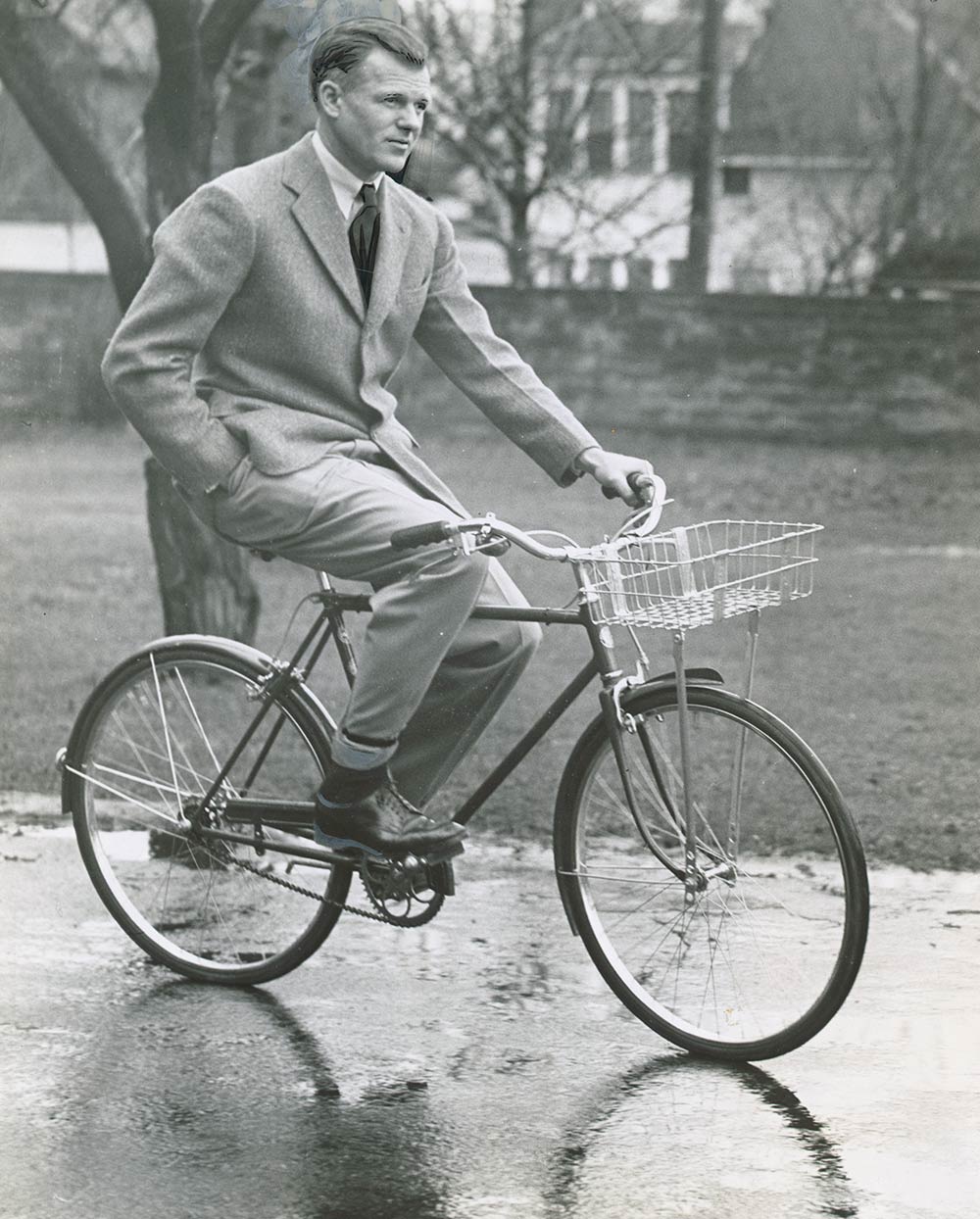Before he became the University’s youngest president and a major player in rebuilding Western Europe after World War II, Alan Valentine played a part in one of the great upsets in Olympic Games history.
A player-coach on the American rugby team, Valentine and the Americans stunned heavily favored France to win the gold medal in Paris in 1924, the last time rugby was played in the Olympics.
When the summer games begin Friday in Rio de Janeiro, Brazil, rugby returns for the first time since that 1924 victory. The hiatus technically makes Valentine’s team the Olympic defending champions.
One of a handful of University of Rochester Olympians, Valentine is joined in the record books by three-time Olympic fencer Ann Marsh ‘00M (MD), gold medalist rower Dominic Seiterle ‘05S (MBA), 1956 U.S. Olympic soccer team captain Zenon Snylyk ’55, and long jumper Viktoriya Rybalko ’06 (MS), who competed in the 2008 and 2012 games for her native Ukraine.
Valentine’s role was more subtle. The Rhodes Scholar, who earned his bachelor’s degree at Swarthmore College and his master’s at the University of Pennsylvania, was the last player chosen for a team that was made up mostly of football and basketball players. Valentine earned one varsity letter in lacrosse and three in football at Swarthmore from 1918 to 1920. He was inducted into the Philadelphia-based school’s Athletics Hall of Fame in October 2016.
The Americans had defeated France in the 1920 gold-medal game but were 20-to-1 underdogs in 1924.
The contentious gold-medal game was played before 50,000 rabid fans, and Valentine set the tone by sprinting the width of the field and hurling his 210-pound body into French star Adolphe Juarraguy. Juarraguy was carted off the field on a stretcher, “like a sack of potatoes,” U.S. player Charlie Doe said.
The Americans won 17-3. The angry French crowd threw bottles and rocks and beat American supporters in the stands. French police escorted the players to their hotel.
The upset was considered momentous.
“Our victory in ’24 made the U.S. hockey win against the Soviets in 1980 look like an everyday occurrence,” Doe said, referring to the “Miracle on Ice” in which an American team of college players upset the mighty Soviet Union in the semifinals at Lake Placid, New York. “If we had that kind of coverage, rugby might be the great American pastime today.”
Because of the ugly atmosphere in Paris and a lack of interest worldwide, rugby was dropped as an Olympic sport.

Valentine taught English at Swarthmore and became a history professor and chairman of admissions at Yale. In 1935, at 34, he became the youngest president in University of Rochester history. His 15-year tenure spanned the end of the Depression, World War II, and the surging enrollment that taxed Rochester’s facilities after the war.
In 1948, Valentine was chosen to head up the Marshall Plan—an American initiative to rebuild post-war Western Europe—based in the Netherlands. He resigned as University president in 1950 and was chosen by President Harry Truman to run the new Economic Stabilization Agency, responsible for imposing price ceilings and wage controls on the U.S. economy. His position was labeled “the hottest seat in Washington,” and after four months of infighting with Washington bureaucrats, he resigned.
Valentine returned to Rochester in 1966 for the dedication of a residence hall that bears his name. He wrote his memoirs in retirement and died in 1980 at 79.



